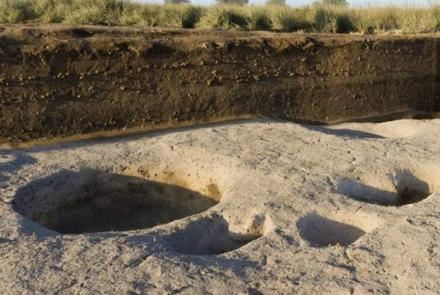Egyptian archaeologists have unearthed an ancient Egyptian village in the Nile Delta which reportedly predates the pyramids by 2,500 years, Science Alert reported.
The remains of the ancient village, dating back to around 5,000 BCE is one of the oldest ever discovered in the region, predating the pyramids at Giza by 2,500 years.
The Neolithic site, at the fertile Tell el-Samara some 140km north of Cairo, is up to around 7,000 years old, according to the Egyptian Ministry of Antiquities.
The joint French-Egyptian excavation team found several storage silos, containing organic matter - animal bones and plant residues - that allowed them to date the site. They also found pottery and stone tools, indicating a stable community.
These discoveries open up an opportunity to identify and learn more about the prehistoric communities that occupied the Nile Delta thousands of years before the legendary King Menes united upper and lower Egypt, founding the first Pharaonic dynasty.
"Analysing the biological material that has been discovered will present us with a clearer view of the first communities that settled in the Delta and the origins of agriculture and farming in Egypt," said Nadia Khedr of the Egyptian Ministry of Antiquities.
The researchers believe that the farming practices in the village could have been heavily reliant on rain. This could help shed some light on the development of irrigation-based farming later practised in the Nile Delta for thousands of years.

